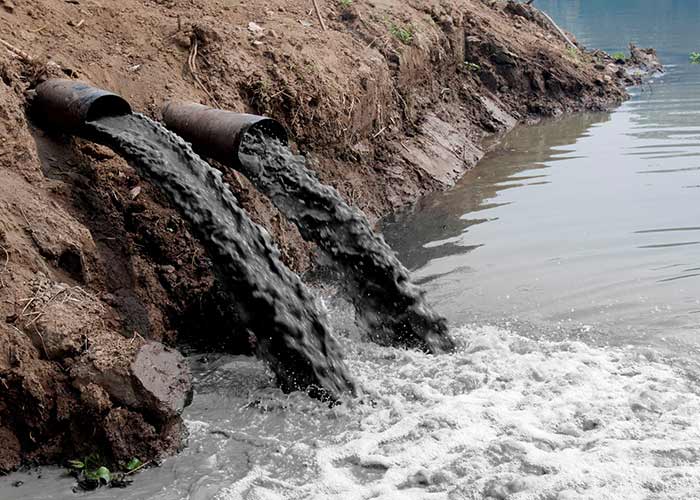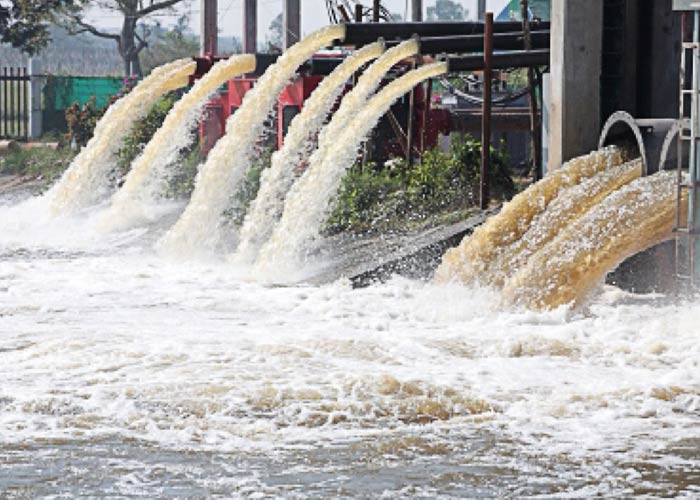During the primitive days, human beings used to discard their household waste such as trash, other worthless or defective items simply by digging a hole and burying them. This method was useful in those days because the population was relatively small, their needs were limited and they used to produce the waste on a small scale.
Now the situation has changed due to tremendous increase in human population and industrial development. Consequently, managing the colossal waste has become a very challenging task for the human kind.
Meaning of Waste Management
Waste management is now not about merely dumping the unwanted things in a random way it but has become a systematic process consisting of collection, transportation, and proper disposal of garbage, sewage and other waste products. This also offers various solutions for recycling the items, putting the waste to productive use.
Types of Waste
In a broad sense, waste can be classified into four major types as urban waste, industrial waste, biomass waste, and biomedical waste. With terms that are more specific, waste can be categorized as:
- Solid Waste: Solid rubbish consists of number of items found in household along with some commercial as well as industrial locations.
- Liquid Waste: Households and industries generate liquid waste.
- Organic Waste: Consisting of organic material such as food, garden and lawn clippings organic waste includes animal and plant based material and degradable carbon such as paper, cardboard and timber, commonly found in household.
- Agricultural Waste: Waste generated by agriculture includes waste from crops and livestock.
- Bio-medical Waste: Bio-medical waste means any waste, which is generating during the diagnosis, treatment, or immunization of human beings or animals.
- Recyclable Rubbish: Recyclable rubbish consists of all waste items that convert into products and use again as all types of metals, paper, and organic wastes.
Types/Methods/Techniques of Waste Management
Following are the effective methods of waste management except ocean dumping which has been controlled, regulated and banned in some cases in order to stop the hazardous materials to be dumped into the sea:
- Ocean Dumping
- Sanitary Landfill
- Incineration
- Composting
- Waste separation, recycling and recovery
- Mechanical and biological waste treatment
- Mechanical sorting of wastes
Importance of Waste Management/Why Waste Management is so Important?
According to some research reports, every year, 62 million tonnes of waste is generating out of which only 28% of waste is recycled and 72% is left on the roads and the landfill areas for several years, which is fraught with hazardous consequences. Presently, most of the developing countries are facing almost similar situation. Therefore, segregating various kinds of wastes from the households, efficient waste collection systems, proper disposal, and sustainable recovery are very much needed processes in modern-day world.
Nothing is waste until it cannot be used anymore in any way. We generally see wastes piled up but do not think deep enough on how to use them. Today there are many innovations available in waste management like recycling wastes into usable products, generating methane or fuels, manufacturing new products for home/commercial usage such as fence posts, furniture and so on. Therefore, the importance of managing waste in a very effective way has enhanced many folds now-a-days.
What can be done to Manage Waste in a Scientific Way?
An effective strategy to dispose various wastes can offer many solutions for the various problems associated with waste materials. The most efficient way to deal the waste is to recycle and compost. It ensures there is gradual improvement of new and cost-effective facilities, which aim to encourage higher environmental protection standards.
Efficient Management of Landfills: Most landfills lack proper on-site waste management thus contributing to some additional threats to the environment. After certain period, these landfills tend to leak and pollute ground water and other neighbouring environmental habitats making waste management a very difficult task. These landfills also generate potentially unsafe gases.
Most of the laws and regulation guiding the operations of landfills are often slack at monitoring and regulating the different types of wastes like medical waste, municipal waste, special waste, or hazardous waste. This slackness of the laws contributes towards significant increases in toxicity and hazardous waste to a point where the landfill wastes problems often lasts up to many decades.
Concept of 3R: Keeping the nature of waste generated by the households and industries in view, the three R’s mantra of Reuse, Reduce and Recycle appears be more suitable to meet this challenge. Care should be taken to see that these options should be taken up under a well sustainable framework.
Zero Waste System: Industries can play a very significant role by streamlining the process of waste management for the entire organization through the one central system. Companies can deal effectively with hazardous waste regulations about the generation of their waste, its handling, transportation and safe disposal of the waste. In fact they can very well attain “zero waste to landfill” targets as part of sustainability initiatives.
More emphasis should be given to responsible resource use with an objective of avoidance, maximizing recycling and waste reduction methods. This involves techniques such as repair of broken things instead of buying new, purchasing and re-using second-hand items, and designing reusable and recyclable products.
Benefits of Waste Management
The benefits of managing wastes are very clear from the following:
- Saving Natural Resources: It is a matter of serious concern for us when we see that many natural resources such as trees, gas, and water are diminishing very rapidly. We all know that paper, cupboards, paper cups, and many other products are made from trees. However, trees are cut down on a large scale every year and new trees are not replacing them at the rate they are cut. Therefore, we should think to recycle paper products so that there is no need of cutting new trees. It is also quite possible to reuse plastic and metal items. Some countries have established certain sites where people can bring and sell old newspapers, metal items, or glass. These products are recycled and used again.
- Producing energy: Recycling is a great way to produce energy. By recycling something, we save energy because more energy is usually needed to produce a new item. For example, it is possible to get energy from recycling the waste. In Mukesh Ambani’s house, garbage is used to create electricity. It is reported that electricity is generating from the waste by a special system in their house. First, the dry and wet wastes are separated, after which the electricity is generated. Electricity in such a large house is being produced by recycling the wastes.
- Reduce pollution: Recycling is a one of the most powerful tools to save nature and humanity. Making more people aware is a contribution in a better future. The more people start to manage their waste, the better planet we will have to live in. Apart from leaving a lot of waste, humanity pollutes the environment by producing various products. Factories considerably pollute the atmosphere with smoke by manufacturing processes. Recycling reduces pollution and helps save energy. Sounds like a win-win solution.
- Recycling Rubbish: Rubbish is a big problem for aquatic life too. A lot of rubbish is thrown away into the sea and ocean. There are large areas of waste called “waste islands,” which are made of rubbish that has been accumulated in one place. Recycling rubbish is important for nature and humanity. Recycling begins with rubbish management. It means that paper items can be collected into a paper bin for paper waste, glass into a glass bin and so on.
Indian Scenario on Waste Management
Under Indian scenario, the approach towards solid waste management is not scientific, at least for a common person. As the number of industries is increasing day by day due to a rapid increase in urbanization, this is eventually leading to the generation of municipal solid waste at a significantly high rate. In today’s time, this problem has become so disturbing that a small rain creates conditions like floods in towns and cities.
If we look at the condition that was existing during few decades ago, it gives us an impression that it was far better than the present. During those days not only, the roads but even the streets of small towns used to be cleaned every day. Cleaning of drainages used to a part of everyday life and generally, no one would deliberately put garbage in the drainage. The silts and litter collected from the houses used to convert into organic fertilizers.
In this context, we can cite one example of a small city of Gujarat state – Bhavnagar to have a very good system of managing the drains. Bhavnagar is one of the few cities having underground drainage facilities ever since the time prior to independence. The old city of Bhavnagar had underground drainage system. These internal drainage works of the city came into practice since 1936 by Public Works Department of the state.
During olden days, people had a habit of shopping with a cloth bag. The goods purchased from the market used to be brought home usually in this bag. However, gradually the bag was replaced by a plastic bag. People started feeling ashamed to walk around with a cloth bag, as the use of plastic bags became the national habit. Now the use of plastic is growing due to continuous consumption of various commodities of day-to-day life.
Recommendations to Manage Waste Effectively/ Solutions for Waste Management
- We are moving from worse to worst in waste management because of the lack of laws and regulations in this regard. We do not have even a single city where the entire waste of the city is being managed in a scientific way. Identifying the sites where waste could be dumped and managed is becoming a great problem because of the resistance of the local people due to environmental considerations. In most of the towns, this waste ultimately finds its way on the banks of the rivers or on the periphery of water bodies. As a result, the surface water bodies are getting polluted. It is imperative that city planners consider this aspect in the planning stage itself.
- Adequate consideration should be given to monitor the processes. There is a need to educate the public and plan in a proper way for waste management programs and implement into current waste management system. Some awareness programs also must be conducted to enhance the knowledge about managing the waste in an eco-friendly way. If these things are accomplished properly, we will be able to save money at individual as well as society level.
- The concerned authorities should provide the introduction of certain programs and policy development about how efficiently we can do the waste management. It is not that everything eventually will decompose as this process results in many non-worthy by-products in the end. Most of the things we discard do not decompose. We unwittingly contribute to store them in a huge quantity at underground level. The time demands that waste management must be sustainable. Now a days, the proper management of solid wastes needs an economically affordable, socially accepted and environmentally friendly appropriate technology.
- Recycling makes sense in most of the areas of our economy. In modern cities, wastewater is treated to use it again but when cooking oil starts solidifying in collection systems and eventually hamper the flow of wastewater, we have to deal with very high costs for repairs. Moreover, not all kinds of wastes are getting recycled. Only metals are recycled almost 100% into consumer goods. Glass and paper are at the second place but unfortunately, only less than 50% of plastics are being recycled. A very fruitful alternative to this problem could be to use bio-plastic, which tend to be more favourable to the environment.
- Various communities from all walks of life whether urban or rural should be educated about the harmful impact of waste on infrastructure and public health through multimedia and how waste collection services can be improved to at local level. People should understand if they are not able to manage them, these waste materials might cause a serious hazard to human health as well as to the environment.
- In fact, it is rarely better to simply throw something away than to reuse it or recycle it. We must always have in mind that our main and ultimate objective of waste management program is to keep the Earth clean and to conduct our activities in an eco-friendly way so that we can leave a more hygienic and healthy environment for future generations.







